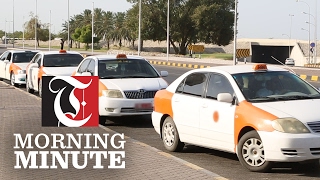- Slot Games: The Timeless Thrill of the Spin
- Slot Games: The Everlasting Allure of Spinning Reels
- The Fascinating World of Slot Games: From Classic Reels to Digital Entertainment
- Slot Games: Spinning into the Future of Entertainment
- Slot Machines: The Captivating Intersection of Luck, Design, and Entertainment
Navigating Oman: A Guide to Taxi Services in the Sultanate

In the heart of the Arabian Peninsula lies oman taxi, a land of rich culture, breathtaking landscapes, and warm hospitality. For travelers exploring this gem of the Middle East, navigating its cities often involves relying on transportation services, with taxis being a popular choice. In this article, we delve into the world of Oman’s taxi services, offering insights, tips, and everything you need to know for a seamless journey.
Understanding Oman’s Taxi Culture: Oman’s taxi culture is deeply ingrained in its societal fabric, reflecting both tradition and modernity. Taxis are not just a means of transportation but also serve as informal ambassadors, providing visitors with a glimpse into Omani life. From bustling city streets to remote villages, taxis offer connectivity across the diverse landscapes of Oman.
Types of Taxis: In Oman, you’ll encounter various types of taxis catering to different needs and preferences:
- White Taxis: These are the most common type of taxis found in Oman. Easily recognizable by their white color, they operate in urban areas and are hailed on the streets or booked through phone apps.
- Airport Taxis: Dedicated taxi services are available at major airports such as Muscat International Airport, offering convenient transportation to and from the terminals.
- Hotel Taxis: Many hotels in Oman provide their own taxi services for guests, ensuring hassle-free travel arrangements.
- Shared Taxis: Particularly prevalent in rural areas, shared taxis operate on set routes and are a cost-effective option for short distances.
Regulations and Safety: Oman’s taxi industry is regulated by the government to ensure safety and quality standards. Licensed taxi drivers undergo thorough screening processes and are required to display their credentials prominently. Additionally, taxis are equipped with meters to calculate fares fairly, although negotiating fares for longer journeys is common practice.
Tips for Travelers: For a smooth taxi experience in Oman, consider the following tips:
- Communication: While English is widely spoken, some taxi drivers may have limited proficiency. It’s helpful to have your destination written down or displayed on a map to avoid misunderstandings.
- Fare Estimation: Before embarking on your journey, it’s advisable to inquire about the estimated fare to avoid surprises at the end of the ride.
- Cash Payments: While some taxis accept electronic payments, it’s always wise to carry cash, especially for shorter trips and in remote areas where card terminals may not be available.
- Respect Local Customs: Oman is a conservative country, and it’s important to respect local customs and dress modestly, especially when sharing a taxi with Omani passengers.
Conclusion: In Oman, taxis are more than just a mode of transportation; they are gateways to authentic experiences and cultural exchanges. Whether you’re exploring the vibrant streets of Muscat or venturing into the rugged terrain of the Hajar Mountains, taxis offer convenience, reliability, and a glimpse into the warmth of Omani hospitality. By understanding the nuances of Oman’s taxi services and adhering to local customs, travelers can embark on unforgettable journeys through this enchanting land.
